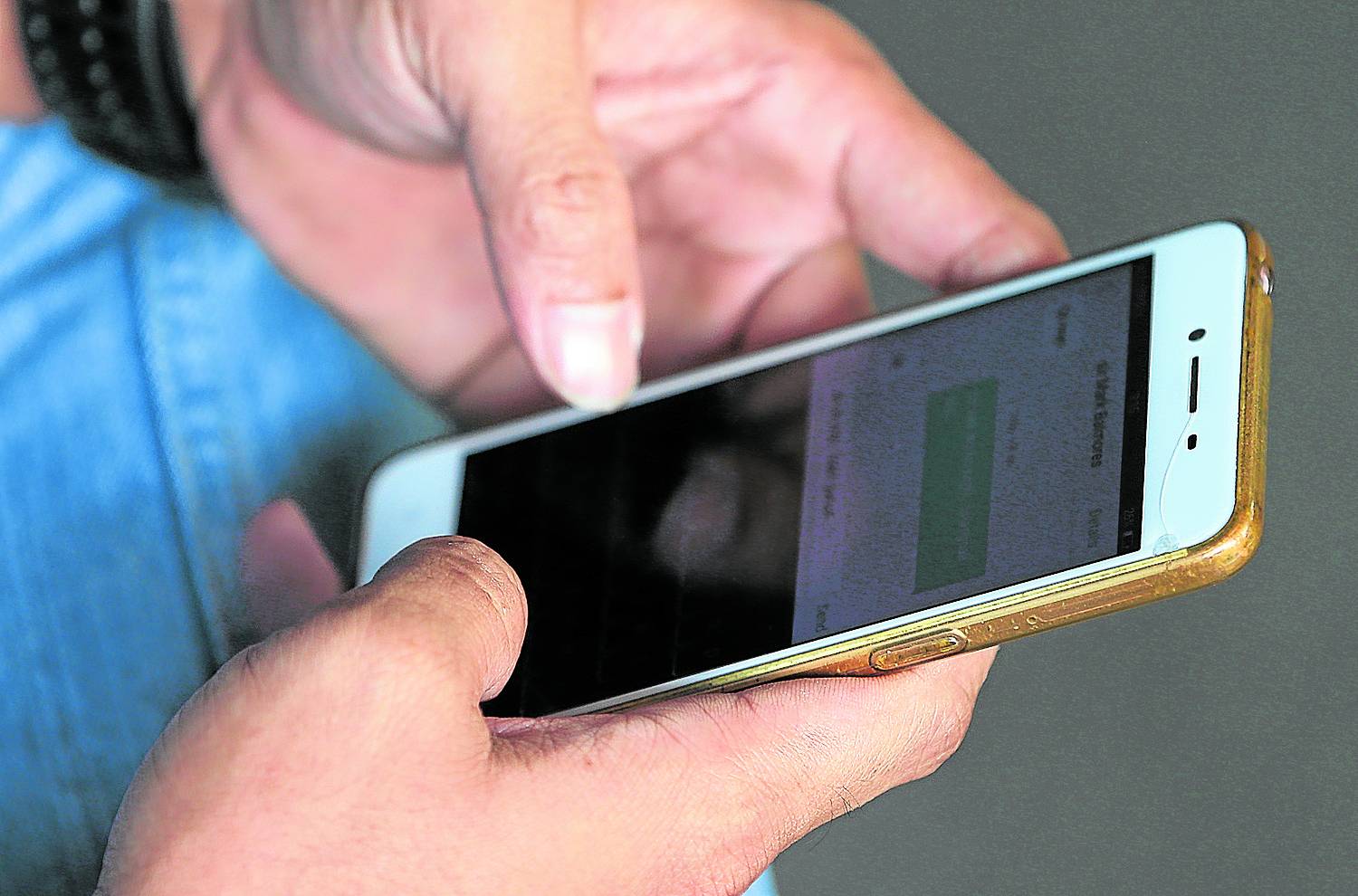
SCAM TARGET Mobile phone users have been advised to be paranoid in dealing with text messages from unknown senders who may be stealing sensitive information by offering nonexistent job opportunities via SMS. —NIÑO JESUS ORBETA
MANILA, Philippines — President Rodrigo Duterte’s veto of the proposed SIM card registration law is a big win for trolls Senate Minority Leader Franklin Drilon said Saturday.
“By vetoing this bill, the President lets trolls thrive, spread lies and hate, and fuel discord and division,” Drilon said in a statement.
“Political trolling as we’ve seen these days is a thriving business. This veto is a big win for troll farms… This veto is meant to protect trolls. Is it a parting gift? Magpapatuloy ang industriya ng trolling,” he added.
Drilon said to say he is disappointed by Duterte’s veto of the bill is an “understatement.”
“I authored this particular provision of the measure in order to address the anonymity in the internet and the social media that allowed an environment for troll accounts and fake news,” the senator said.
The vote, he added, is a big blow to the fight against trolls and fake news. He also stressed that as long as there is anonymity in social media, political trolling, troll armies and fake news will continue to succeed in sowing discord and division among Filipinos.
Drilon cited as an example the online attack against Vice President Leni Robredo’s eldest daughter Aika on a fake lewd video.
The senator said Aika is only one among thousands of victims of trolls and fake news.
“Some of them are children who may bear the scars of bullying and trolling for life. The bill could have helped in preventing trolls and fake news,” he noted.
The proposed SIM Card Registration Act seeks to mandate the registration of all SIM cards and social media accounts in the country and is seen to curb fraud and other crimes aided by SIM cards. It also includes a provision against online trolls by requiring social media account providers to mandate real name and phone number upon creating an account.
Acting presidential spokesperson Martin Andanar earlier said Duterte noted that the inclusion of social media providers in the registration requirement was not part of the original version of the bill and “needs a more thorough study.”
However, Drilon stressed that concerns that the measure could affect individual privacy and free speech are unfounded. He said that Section 9 of the bill provides for the confidentiality clause which mandates that “any information obtained in the registration process described under this Act cannot be disclosed to any person.”
The disclosure may only be done in compliance with any law obligating the Public Telecommunications Entity or social media provider to disclose such information in accordance with the provisions of Republic Act. No. 10173 or the Data Privacy Act of 2012; in compliance with a court order, legal process, or other government regulatory, or enforceable administrative request for information; in compliance with Section 10 of the bill; or with the written consent of the subscriber.
“There were enough safeguards. Unfortunately, the veto is nothing but to protect troll operators and troll armies, some of them are in Malacañang,” Drilon said, citing the thousands of contractual employees at the Presidential Communications Operations Office (PCOO) whom he said are suspected of running troll accounts.
PCOO Undersecretary Kris Ablan earlier maintained that the contract of service personnel hired by the PCCO were social media specialists and not online trolls.
Drilon also disputed claims that the provision that he introduced in the proposed SIM Card Registration Act was an out-of-topic provision.
“It’s not a last-minute insertion. We studied it and introduced it in the Senate plenary as part of our humble contribution in the fight against trolls, fake news and other internet-related criminal activities. Twenty-two senators voted in favor of the measure on third reading last December. The House of Representatives adopted our version with little modification,” Drilon said.
Drilon explained that the title of the bill clearly set out the “overarching” objective of the measure which is to eradicate mobile phone, internet or electronic communication-aided criminal activities including terrorism, text scams, bank fraud, anonymous online defamation, trolling, and fake news, among others.